Helminths, popularly called worms, can penetrate the body of animals and humans. A disease caused by worms is called helminthiasis. In the modern world, doctors count several hundred different types of worms. Some species do not cause much harm to the human body, while others can lead to a variety of diseases, sometimes fatal. The infection occurs unnoticed and many are not even aware that parasites and their larvae are the cause of constant discomfort and deterioration in health.
What are the causes of a worm infection?
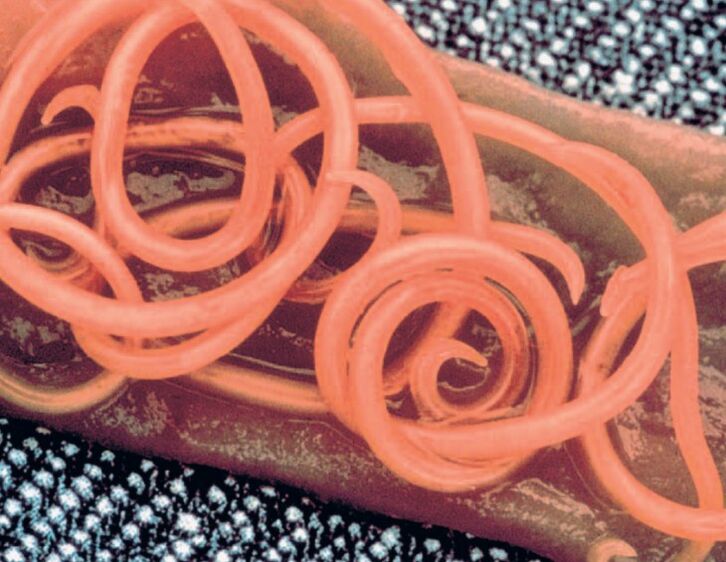
Worms in the human body can appear for various reasons:
- consumption of vegetables and fruits that have not undergone heat treatment or have not been washed before consumption;
- when preparing food, a person does not comply with hygiene rules;
- improper heat treatment of meat and fish products;
- frequent contact with animals infected with worms;
- caring for pets that often run outside;
- complete lack of hygiene rules after using the toilet, before eating, after walking outdoors;
- eat raw fish;
- live together, communicate with a person suffering from helminthiasis;
- water procedures in a river, lake;
- in rare cases with insect bites.

Children ages 3 to 10 are most often exposed to pinworms due to poor hygiene. Human worms are highly contagious and can be transmitted from animals or another person. Many young children ignore the rules of personal hygiene, so they become infected with worms more often than adults. Parents should teach their children the concepts of personal hygiene from childhood, as the kindergarten teacher often cannot keep track of everything and infections can occur. Basic good handwashing skills and a ban on touching the mouth after playing in the sandbox can protect a child from infection.
People who work with different animals and constantly cut meat and fish are at high risk of infection. Simply touching your mouth after direct contact with contaminated fish or meat is a direct cause of parasitic infection.
Some types of worms can enter the human body through food, others through contact with an infected person or animal, and still others live in water, often used for cooking or water treatments.
Symptoms of worms in humans

Some types of parasites are easy to detect, others are carefully camouflaged in the human body. Symptoms of worms in a person infected with roundworms and pinworms include severe itching in the anus, bloating and disturbed bowel movements. These worms live in the intestines and can leave the body along with the feces when you go to the toilet. The symptoms appear due to the vital activity of the parasite: they release strong allergens into the intestinal flora, causing damage to the intestinal walls, after which inflammatory processes begin in the stomach.
It should be noted that not every parasite can live in the stomach. Echinococci most commonly affect the lungs and liver. A small worm penetrates deep into the organ and forms a protective shell around itself. When examining it, specialists may confuse the parasite's protective capsule with a tumor.

What symptoms may occur if a person has worms:
- Chronic headaches.
- Weakness.
- nausea.
- Indigestion.
All of these symptoms can indicate a parasitic infection. Signs of the presence of worms in a person are increased allergic reactions; This symptom should be given special attention in people who were not previously prone to allergies. In this case, such a reaction is one of the signs of the presence of worms and their active activity in the body.
Signs of the disease
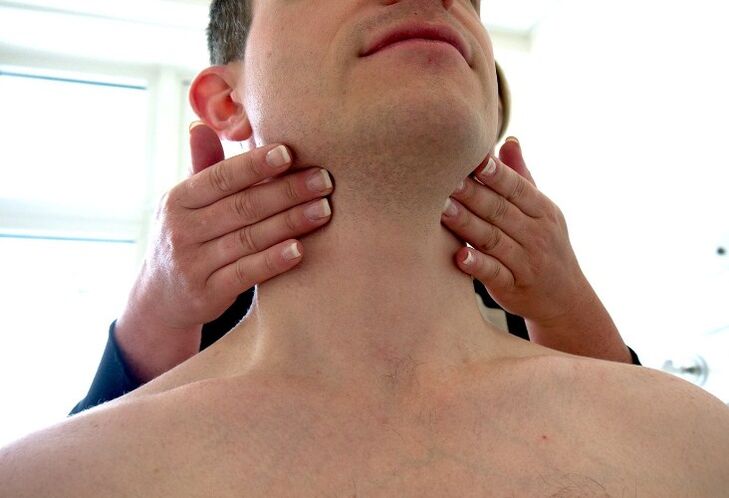
The signs of worms in humans can be different depending on what type of parasite the patient is infected with and where he is located. The first signs of worms.
- Inflammation of the lymph nodes.
- Allergic skin damage.
- Diarrhea.
- Constipation.
- Excessive gas formation.
- Stomach pain.
- nausea.
- Enlarged spleen, liver.
- Dry cough.
- General weakness.
- Excessive itching – on the skin, genitals and rectal area.
- weight loss.
- Increased body temperature.
- Constant headaches.
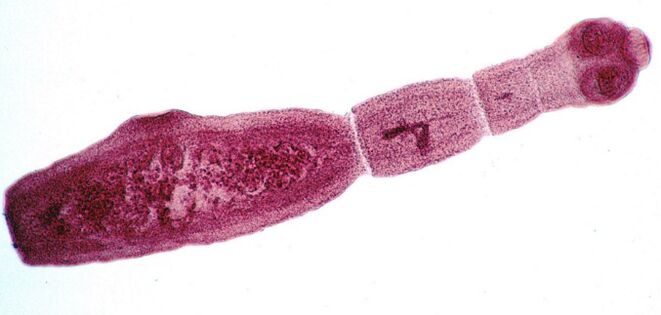
Worms may not cause symptoms in humans for a long time. Echinococci most often affect the liver and can manifest themselves six months or more after entering the body. The worm begins to manifest itself at the moment when the protective capsule becomes so large that it compresses the internal organs and the structure of connective tissue, which is why there is pain on the right side and a yellowish tint to the skin. Nausea and indigestion.
In rare cases, the lung fluke Echinococcus can parasitize the brain or muscle tissue. They usually live in the liver and lungs, which can lead to chronic dry coughs and shortness of breath. Any parasite that enters the human body causes intoxication – general weakness, muscle pain, headache, increased body temperature. Symptoms may not occur at the same time, but rather separately and at different times. Ignoring the symptoms that arise for a long time will only aggravate the situation, the body's defenses will be greatly weakened, and the person will constantly suffer from viral or other diseases. The internal organs are also subject to long-term negative effects and take a long time to recover.
Symptoms and treatment of worms

Today there are many ways to get rid of worms offered in traditional folk medicine. It should be noted that worms, symptoms and treatment in adults left unattended will have a negative impact on the well-being and the parasite will continue to progress. Worms provoke inflammatory processes in the body, suppress the immune system and worsen general well-being and health.
The method of ridding the body of worms is called deworming and is carried out with special medications. Before prescribing the drug, the specialist conducts a comprehensive diagnosis to determine what type of worm is parasitic in the body and whether the patient has an allergic reaction to individual components of the drug.

During treatment with anthelmintics, the doctor may additionally prescribe antihistamines that will help reduce or eliminate an allergic reaction to the components of the main drug.
To get rid of worms, you can also resort to traditional medicine, which has proven itself effective in the fight against parasites. However, it should be remembered that it is better to consult your doctor before starting to take folk remedies. Self-treatment should be avoided, especially given the severity of the disease. After completing the prescribed treatment, the specialist usually prescribes medications that restore the normal functioning of all internal systems and organs. If necessary, a person is prescribed sorbents.
Traditional means of combating worms
The symptoms of a worm infection will help a specialist choose the right drugs to remove worms from the body.
A drug that helps to naturally remove worms from the body, has a paralyzing effect on parasites and is suitable for both adults and children from two years old.
In cases where drug treatment does not help in the fight against worms, specialists prescribe surgical intervention. Doctors must remove the parasitic worm and the area of the organ in which it is located.
Precautions
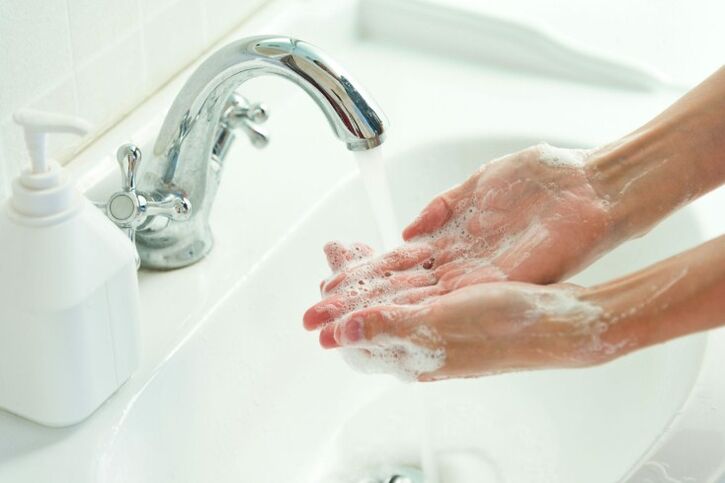
Initially, it is not the worm itself that penetrates the body, but only the eggs of the worms, from which adult parasites develop after a while. To avoid certain types of parasites from entering the body, you should adhere to certain hygiene rules:
- When you go outside or come home, you must wash your hands thoroughly with soap.
- Before preparing or eating vegetables and fruits, they must be washed thoroughly.
- Meat and fish must undergo complete and proper heat treatment before consumption.
- Kitchen utensils for cutting meat and fish must be thoroughly washed and disinfected.
- If you have a pet, it is good to monitor its health status. For prevention, visit a veterinarian at least once a quarter.
- If you suspect the presence of worms, be sure to go to the hospital for examination and timely medical care.
Traditional medicine in the fight against worms
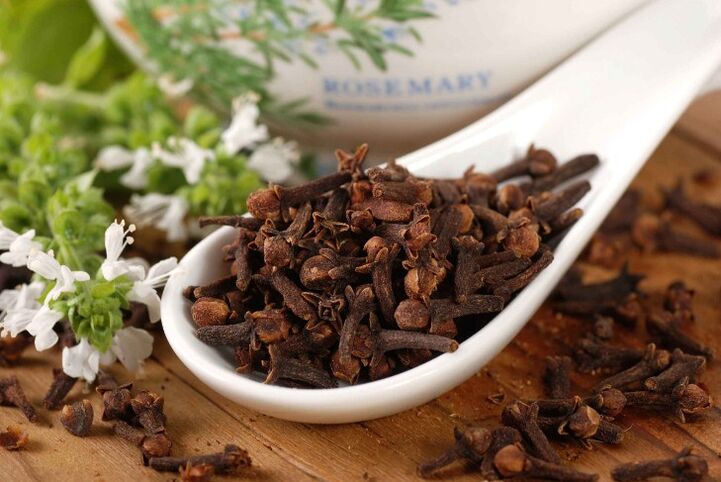
Mixture. Mix tansy, wormwood and cloves in equal proportions. Grind each ingredient. Mix until smooth. When you wake up in the morning, take 1 tsp. Dry mixes. After consumption, you can drink a glass of water to eliminate the bitter taste. The duration of admission is 1 month.
Garlic against pinworms. Grind the garlic until it forms a paste. Mix 1 tsp. Porridge with 200 ml of warm boiled water. Leave on for 1 hour. Do an enema with this infusion 2 hours before bedtime. To completely get rid of the parasite, you should carry out the procedure every evening for a week.
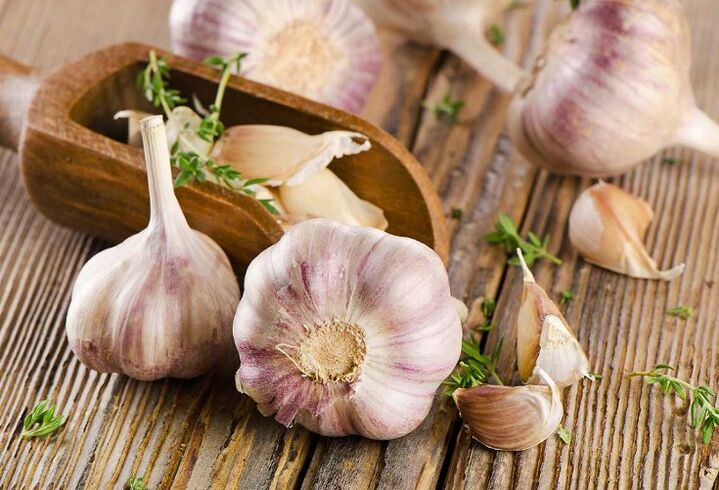
In folk medicine there are a variety of recipes for getting rid of worms. However, it should be noted that self-medication can aggravate an already existing situation, and folk remedies are best used as additional treatment. It is best to discuss taking medication with your doctor.
A parasitic infection with helminths may not bother you for a long time; the worms develop, parasitize and slowly poison the body. The combination of characteristic signs of the disease is the main reason for visiting a specialist and strictly following all his recommendations.








































